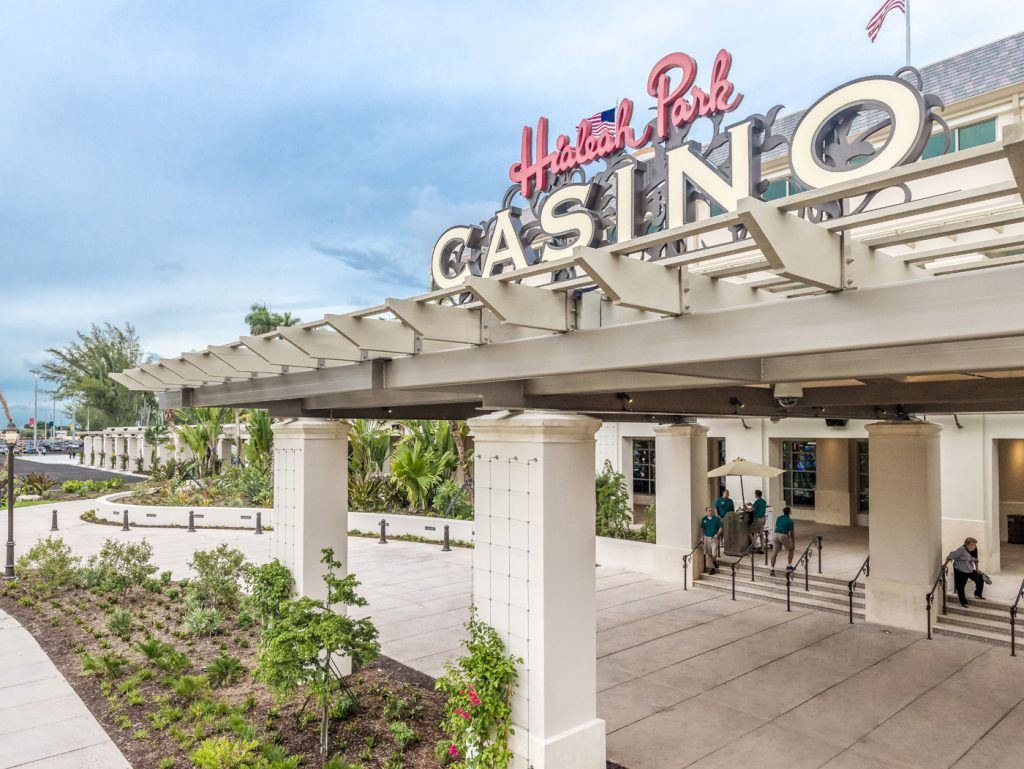Florida Slots Expansion Lawsuit Heard by State Supreme Court, Decision Could Impact Seminole Compact
Posted on: June 8, 2016, 02:17h.
Last updated on: November 30, 2021, 10:50h.
Florida slots are presently legal in Miami-Dade and Broward counties, and outside of the Miami area, the state’s Seminole Tribe holds exclusivity on the gaming machines through its compact with the state.

But Gretna Racing LLC is under the impression that horse tracks around the state have the legal right to offer slot machines at their card rooms and casinos, thanks to a 2010 statute passed by the Florida Legislature.
Slot machines have been legal in the two aforementioned counties since 2003, as long as the facilities are parimutuel. That changed in 2010, when legislators voted in favor of allowing Hialeah Park in Miami-Dade, a Class III casino, to house slot machines.
By amending the state gambling law, Gretna believes its newly constructed casino in the panhandle should be allowed to incorporate slots. Gretna is partnered with the The Poarch Band of Creek Indians.
Now Gretna has taken its case to the state’s Supreme Court, which heard oral arguments on June 7.
“The case before you poses a very simple question of statutory interpretation,” Gretna attorney Marc Dunbar told the six justices. “This is likely the easiest case you’re going to deal with today.”
There’s no set timeframe as to when the Supreme Court might issue its decision.
Not So Fast
Justice Barbara Pariente wasted no time in challenging Dunbar’s assertion that this was a slam-dunk case. She specifically questioned if the state legislature even possesses the legal authority to expand gambling without voter approval.
Another key component that seems to hamper Gretna’s case is that while the legislature did indeed approve slot machines in Class III casinos inside the Miami-Dade and Broward counties, slots are still banned outside those county limits, aside from Seminole facilities.
Testifying on behalf of the state, Florida Deputy Solicitor General Jonathan Williams told the bench, “The legislature did not intend to legalize slot machines statewide when it changed the eligible facility definition.
“The effect of the eligible facility definition is only to allow facilities in other counties to legalize slot machines if the legislature approves such a referendum, or if the voters through a constitutional amendment approve such a referendum.”
What’s At Stake?
While the legality debate and interpretation of what the exact intent was of the legislature in 2010 is complex, it doesn’t take an authority of the state’s laws to understand why the state plans to rigorously fight the expansion of Florida slots.
Should the state Supreme Court rule that the other 65 counties can indeed offer slot machines, the verdict would effectively vacate Florida’s existing compact with the Seminole Tribe.
Between 2010 and 2015, the Seminoles paid the state about $234 million annually to operate slot machines at its four casinos not located within Miami-Dade or Broward. Though the compact technically expired last July and no agreement has been reached, the Seminoles continue to offer table games and slots.
A proposed new 20-year deal was considered earlier this year that would have guaranteed $3 billion to the state, but the compact failed in the Florida House in March.
With billions at stake, it’s safe to say the state will do everything in its power to make sure a small facility like the Gretna Casino doesn’t jeopardize such monumental gaming revenue.
No comments yet